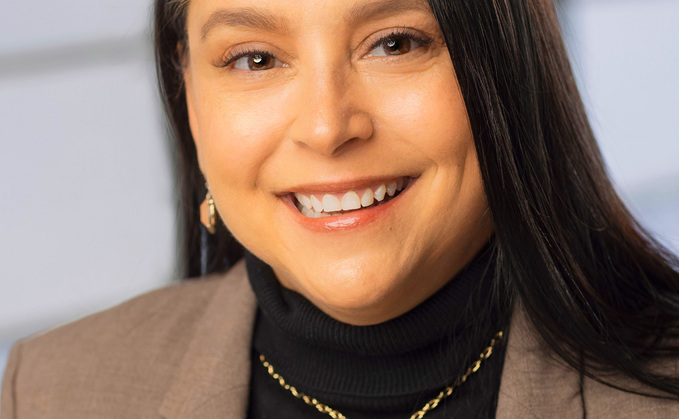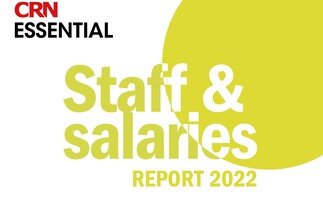
Kim Lonas
Global diversity and inclusion lead, Exertis
What's the most pressing issue preventing progress with diversity today that no one's talking about?
Taking action is the biggest challenge that businesses face. Diversity and inclusion are often talked about, and the intention is there to execute diversity practices; but other priorities often crop up which unfortunately pushes diversity action to the backburner. Frequently, diversity and inclusion initiatives lie within human resources. Initiatives need to start at the top and be owned at all levels within the business, not just one department. If there are goals set by leaders, and accountability is set at all levels within the business, then diversity and inclusion will be given the priority it deserves.
What do you believe are the most effective policies and initiatives that companies can implement to promote diversity in their workforce?
The most effective thing a company can do is to train managers on how to create an inclusive workplace, and train hiring managers on how to create inclusive recruitment practices. Managers need tools. Training is required in order to implement diversity effectively. This is something that we have taken action on and are cascading to our teams across the business.
How much progress do you believe the industry has made in diversity since you started working in IT?
It's difficult to gauge, but it's fair to say that the pandemic had a negative impact on the progression of diversity in all businesses over the last few years. When you consider the business case for diversity and inclusion in the workplace, it just makes sense to continue D&I efforts. What company doesn't want greater productivity, greater innovation and higher revenues and financial returns? Besides being the right thing to do, it's good business to work towards progress in diversity.
What should senior management teams be doing more of to help create a more inclusive industry for everyone?
Senior managers need to lead by example. They should take time to learn how to create inclusive environments and then have their teams do the same. For example, having meetings where every voice can be heard is essential. This is often talked about, but management teams need to focus on how it can be carried out. Having a one-size-fits-all approach won't be effective because of variations across cultures and countries. What works in the US, Spain, UK and France for example will all be very different. If managers listen to their teams and include them in diversity discussions, such as creating an EDIT (Equality, Diversity & Inclusion Team), they will learn what resonates with each setting.
How did you first get into the IT industry?
I worked for Stampede (now owned by Exertis) in a part-time role. It was an interesting opportunity that evolved to be full-time and here I am six years later.
What have been some of your experiences (both good and bad) with how the IT industry has historically approached diversity?
Historically, the approach to diversity has included a published commitment followed by a sharing of demographics. Unfortunately, that's not enough because marginalised employees in the IT industry are still facing under-representation and discrimination. There is a lot of good happening. I've recently been meeting with other tech firms to learn what they are doing to move DEIB (Diversity, equity, inclusion, and belonging) initiatives forward. I've seen so many great programmes being implemented in business like Poly and Google. Companies are collaborating and sharing what has worked and what hasn't been quite as successful. The sharing of ideas and best practices is wonderful to see. Diversity transcends individual businesses and is a bigger picture that everyone needs to focus on.
Who have been your biggest role models in your professional life, and how have they helped you to succeed?
You find role models in different areas of your life. For me, I have a few. My husband has always been a great sounding board. He's been in business for as long as I have and helps me change the lens of how I see my work. There is my most recent managing director in North America, John Dunne. He has worked for Exertis for 30 years providing a blend of transparency, constructive feedback and above all, fun. He encouraged me to pursue my current role and continues to be a big supporter. Last but not least, there is a group of amazing women at Exertis, who are powerhouses in all areas of the business. They are strong, independent women who work hard, are committed to being exceptional at their jobs and lead with grace. Their support has been instrumental to my success, and I aspire to be like them.
Do you think companies should be compelled to publish ‘ethnicity pay gap' data?
In some countries this is already a requirement. However, with many businesses recovering from the setbacks of Covid, taking time to gather and publish this data may be a challenge to achieve until the dust has settled on the pandemic.
Do you believe Covid has hampered or helped gender diversity efforts in the IT industry?
Trend reports on gender diversity across all sectors showed that the industry has taken a step backwards during the height of the pandemic. For example, when daycare facilities closed, the responsibility of childcare fell more heavily on mothers than fathers. In the US, four times as many women dropped out of the workforce during Covid. Fast forward to today, we are starting to see a rebound in gender diversity within the IT industry, but still have a long way to go to narrow the gap.
What can employers do to create a more inclusive workplace for LGBTQ+ staff?
To create a more inclusive workplace for LGBTQ+ staff, employers need to create an environment where their team feels safe to be themselves and feel supported. This has to occur throughout the year, not just the month of June. Employers need to start looking at existing policies through a D&I lens. Do they address the needs of their LGBTQ+ staff? For example, we are working to create surrogacy and adoption policies that support this community's needs. In the UK, we have recently launched an LGBTQ+ Employee Resource Group (ERG) and will also be launching a global ERG. ERGs enhance the employee experience and will ensure the LGBTQ+ community have a safe space to share and give them a voice within the business.
What do you believe are the most effective ways an employer can promote a multicultural and multifaith workplace?
Businesses need to prepare their workforce to be diverse so that everyone has a chance to succeed. This can be done through education and training. Once that happens, they need to be intentional in their hiring practices and find ways to connect with people who are not like themselves. Once a business begins to hire more diversely, they then need to ensure that everyone is allowed to contribute equally and that they are being treated fairly. Affinity groups or ERGs are also a great way to enable those from multicultural or multifaith backgrounds to speak in a psychologically safe environment and to be supported at work.













